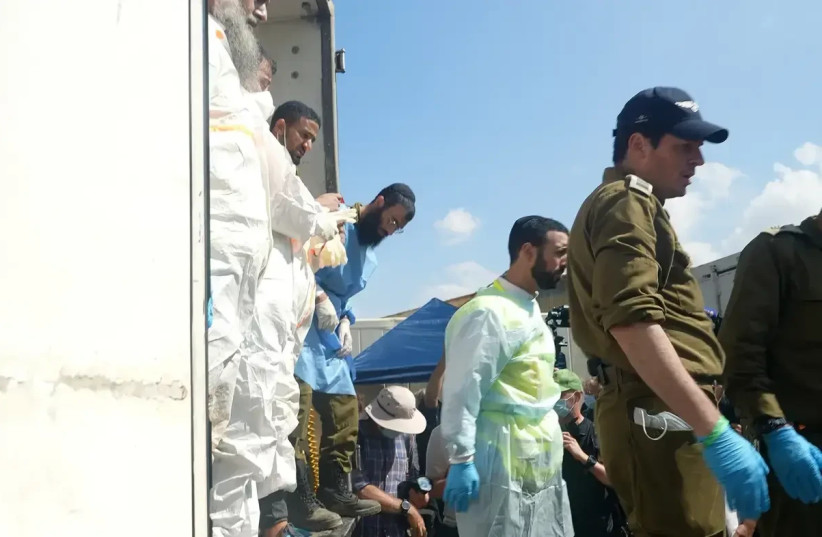Sperm has been recovered from the bodies of 91 fallen soldiers since the beginning of the ground operation in Gaza, according to part of a report from the Knesset's health committee on Wednesday.
According to the Health Ministry, since October 7, there have been a total of 120 successful sperm preservation cases, of which 110 involved soldiers. The committee also claims that 82 of these cases were carried out at the request of the parents.
Ninety-one of these cases are from the start of the ground operation alone.
The successful extraction and preservation do not necessarily mean that the sperm can be used, however.
The Knesset's health committee discussed the law on using the sperm of a deceased person, with Wednesday being the 12th session on this topic.

According to the chairman of the committee, MK Merav Ben Ari from the Yesh Atid party, the law is ready for the first reading, but there are religious disputes that must be discussed before the second and third reading discussions.
"The delays for approval in the first reading are only due to religious issues, and it is now awaiting the chief rabbi's decision and discretion," she explained. "The pending issue is the requirement that the spouse approve the taking of the sperm - after death. Such a requirement will impede the current situation."
A few days after the October 7 massacre, the Health Ministry authorized hospitals to extract sperm from a deceased man for future fertilization purposes, including at the request of his parents, and not just at the request of his partner, while also preventing cases of taking the parents of the deceased to court.
In November, the health committee submitted a bill that would regulate the use of the sperm of a deceased person for procreation purposes in primary legislation.
Certain stipulations regarding use of deceased's sperm
The proposed bill would allow the spouse of a deceased person to use his sperm after his passing, even if he did not leave behind explicit instructions on the matter, on the assumption that he would have wanted the continuity of the family he established, and taking into account his spouse's right to parenthood.
In the event that the partner does not want to use the sperm or the deceased does not have a partner, the proposed law would also allow the parents of the deceased to use the sperm with another woman. This would require approval from the court on a case-by-case basis, and the woman would be considered the legal parent of the child.
Within the framework of the law, the date of collecting the sperm from the deceased cannot precede the date of the determination of death, and no sperm will be taken from the deceased if more than 48 hours have passed from the date of determination of cardiorespiratory death.
Additionally, the director of the hospital's sperm bank will not approve the extraction of sperm from a man who has not yet turned 18 years old, unless he was a soldier.
